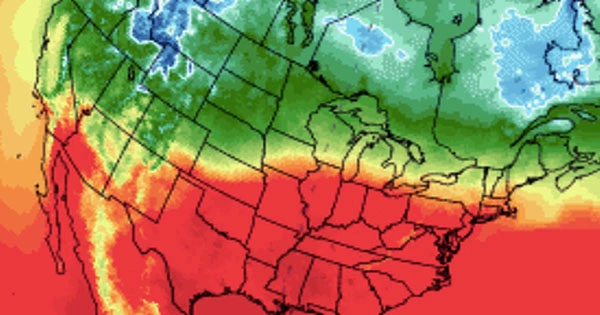An international group of experts has released some really concerning information about the state of the oceans. The oceans have never been hotter, and they are continuing to heat up at an alarming rate. Despite the existence of La Nia in 2020 and 2021, which will result in colder temperatures in the Pacific, the warming trend continues, making this the sixth year in a straight that the world’s oceans have been the hottest.
The data analysis published in Advances in Atmospheric Sciences by 23 researchers from 14 different institutions around the world. The data originated from two places: the Chinese Academy of Sciences’ Institute of Atmospheric Physics and the National Oceanic and Atmospheric Administration’s National Centers for Environmental Information. It also paints a dreadful picture. Last year, the top layer of the oceans absorbed 70% more heat, or 14 sextillion joules, than the year before, indicating a significant increase in comparison to 2020. The top 2,000 meters (6,562 feet) absorbed an additional 14,000,000,000,000,000,000,000 joules.
That’s equivalent to 1% of the energy unleashed by the Chicxulub impact, which wiped out the dinosaurs. For example, imagine releasing 30 Hiroshima nuclear bombs every second for a year. According to the most cautious calculations, the ocean absorbed 227 sextillion joules of heat in the last calendar year, which is 227 sextillion joules more than the 1981-2010 average.
In a statement, lead author Dr Kevin Trenberth of the National Center for Atmospheric Research in Colorado said, “The ocean heat content is steadily increasing, globally, and this is a primary signal of human-induced climate change.” “We updated ocean observations through 2021 in this most current paper, as well as examining and refining prior data,” says the author.
The statistics proves beyond any doubt that the excess heat absorbed is a result of the climate issue. The researchers point out that the data demonstrates significant ocean warming since the late 1950s and that only four years of observations are required to show that human-caused changes have surpassed natural oscillations. “Along with absorbing heat, the ocean currently absorbs 20 to 30 percent of human carbon dioxide emissions, leading to ocean acidification; however, ocean warming reduces the efficiency of oceanic carbon uptake, leaving more carbon dioxide in the air,” said Lijing Cheng, lead paper author and associate professor at IAP CAS. “It’s critical to track climate change mitigation targets in the future by monitoring and understanding heat and carbon coupling.”
Warmer oceans result in more marine heatwaves, which are deadly to sea life. It also means that sea levels will rise, and these massive bodies of water will have a greater power to supercharge weather systems. As a result, more violent storms and hurricanes form, resulting in more precipitation and flooding. “Most of the warming from human carbon emissions is absorbed by the oceans,” said Michael Mann, Distinguished Professor of Atmospheric Science at Pennsylvania State University. “That heating will continue until we attain net zero emissions, and we’ll continue to smash ocean heat content records, as we did this year.” The initiatives to counteract climate change will be based on a better understanding and awareness of the oceans.”














